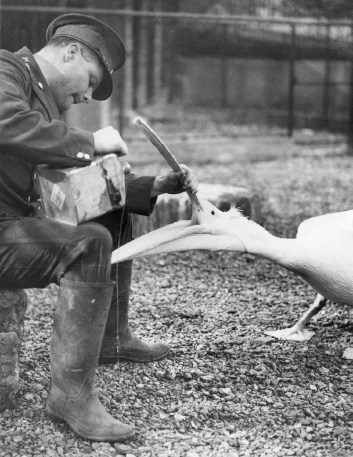
I have a very long memory. So often with ‘science by press release’, newspapers will cover a story even though the scientific paper doesn’t exist, assuming it’s around the corner. In February 2004 the Daily Mail was saying that cod liver oil is ‘nature’s superdrug’. The Independent wrote: ‘They’re not yet saying it can enable you to stop a bullet or leap tall buildings, but it’s not far short of that.’ These glowing stories were based on a press release from Cardiff University, describing a study looking at the effect of cod liver oil on some enzymes – no idea which – that have something to do with cartilage – no idea what. I had no way of knowing whether the study was significant, valid or reliable. Nobody did, because it wasn’t published. No methods, results, conclusions to appraise. Nothing.
In 1998 Dr Arpad Pusztai announced through the telly that genetically modified potatoes ‘caused toxicity to rats’. Everyone was extremely interested in this research. So what had he done in his lab? What were they fed? What had he measured? A year later the paper was published, and it was significantly flawed. Nobody had been able to replicate his data and verify the supposed danger of GM, because we hadn’t seen the write-up, the academic paper. How could anyone examine, let alone have a chance to rebut, Pusztai’s claims? Peer review is just the start; then we have open scrutiny by the scientific community, and independent replication.
So anyway, I wrote at the time that these cod liver oil people at Cardiff University were jolly irresponsible, that patients would worry, GPs would have no answers for them, and so on. This week I contacted Cardiff and said: This is what I said last year, now where’s the paper? Prof John Harwood responded through the press office: ‘Mr Goldacre is quite right in asserting that scientists have to be very certain of their facts before making public statements or publishing data.’ I’m a doctor, but it’s good to know we agree. If puzzling.
Bill the pelican being given a dose of cod liver oil by his keeper
‘Because of that,’ continued Prof Harwood, ‘Professor Caterson and my laboratory are continuing to work on samples.’ Right … ‘I’m afraid this takes a long time and much longer than journalists or public relations firms often realise. So, I regret he will have to be patient before Professor Caterson or myself are prepared to comment in detail.’ How kind. And only slightly patronising. I don’t want them to comment on fish oil. It’s seventeen months after ‘nature’s superdrug’: I just want to know where the published paper is.
In 2014, after being patient for a decade as requested, I contacted Prof Caterson and the Cardiff Press Office again. They confirmed that the research has never been published in a journal. Nobody can read or critique the methods or results, and the only public trace is a skeletal description describing a brief conference presentation. This document is four paragraphs long. The press release was seventeen paragraphs long. I’ll try them again in a decade.1